Share this article
2016 TWS Council candidates announced
The Nominating Committee of The Wildlife Society announces the candidates for upcoming vacancies on TWS Council. Additional nominees for these positions may be submitted by any Voting Member in good standing, if supported in writing by 5 percent of the Voting Membership. The deadline for additional nominations is April 17, 2016.
Electronic ballots will be sent May 6 to all members with an email address. If you do not have an email address, you will receive a mail ballot. Voting will be closed June 5.
Newly elected members of TWS Council will be installed at the 23rd Annual Conference, Oct. 15-19, 2016 in Raleigh, North Carolina.
Candidate statements are provided below. You can also view all candidates’ bios by clicking here.
Vice President Nominees
Gordon R. Batcheller
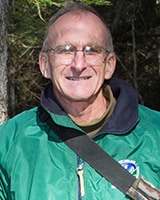 As an undergraduate, I made a lifetime commitment to the wildlife profession and to The Wildlife Society. The wildlife profession best represents my interests, skill set and passions. Our organization, The Wildlife Society, best represents the profession. While there are other organizations that meet specialized scientific and management interests, TWS best addresses the full spectrum of the wildlife profession. This is where I place my allegiance.
As an undergraduate, I made a lifetime commitment to the wildlife profession and to The Wildlife Society. The wildlife profession best represents my interests, skill set and passions. Our organization, The Wildlife Society, best represents the profession. While there are other organizations that meet specialized scientific and management interests, TWS best addresses the full spectrum of the wildlife profession. This is where I place my allegiance.
What matters most to me as a wildlife professional? Quite simply, our responsibility is to ensure that current and subsequent generations care enough about wildlife to take measures to secure populations and habitats in perpetuity. I am inspired by our pioneering conservationists who took steps over 100 years ago to protect wildlife for the future. They had one thing in common-a fundamental passion for all things wild and natural. TWS should play a key role in building up new leaders for our future. I want TWS to be at the forefront in advocating for wildlife conservation at all levels (local, state, national, international) by trumpeting the value of robust science through well-designed and timely research; ensuring that people from all walks of life experience the happiness that comes from enjoying wildlife; ensuring that highly trained professionals are recruited into the workforce while meeting the highest standards for academic and professional excellence; fighting to keep wildlife as a public trust resource; being a strong voice for the legitimate, democratic and lawful use of wildlife; upholding our traditions regarding the use of wildlife while recognizing that modem reforms are needed to meet contemporary management needs; and ensuring that the interests of wildlife professionals are appropriately voiced and heard at all levels, including internationally. The Wildlife Society is a strong organization because we are dedicated professionals who work hard and care for what we do. The task of your national officers is to help you conserve and manage wildlife through the work of the chapters, sections and working groups. I am grateful for the thousands of dedicated wildlife biologists who are the heart and soul of TWS. It would be an honor to assume a national leadership post at TWS to help advance our collective vision for the future of wildlife.
Darren Anthony Miller
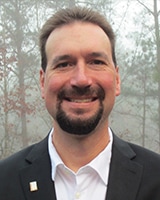 My vision for the Wildlife Society (TWS) is to be THE professional wildlife organization for students, wildlife biologists and the citizens. I desire for The Wildlife Society to be the primary source of science-based information regarding management of our wildlife resources. To accomplish this, we must be sure that TWS serves member needs and stands as a unified voice for science-based wildlife management. This vision requires that we (1) have the financial and human resources to accomplish our mission; (2) strengthen relationships among sections, chapters and the parent society; (3) address conservation issues by adhering to and promoting science-based decision-making; (4) remain mindful of our core values; (5) recognize the key role of existing partnerships and develop new partnerships; (6) continually provide tools and services to our members; (6) expand our policy program to better address loca1, regional, national and international issues; and (7) fully recognize the value of every TWS member and understand that, as a volunteer-based organization, we are only as strong as our membership which must reflect the human diversity of our profession and of society.
My vision for the Wildlife Society (TWS) is to be THE professional wildlife organization for students, wildlife biologists and the citizens. I desire for The Wildlife Society to be the primary source of science-based information regarding management of our wildlife resources. To accomplish this, we must be sure that TWS serves member needs and stands as a unified voice for science-based wildlife management. This vision requires that we (1) have the financial and human resources to accomplish our mission; (2) strengthen relationships among sections, chapters and the parent society; (3) address conservation issues by adhering to and promoting science-based decision-making; (4) remain mindful of our core values; (5) recognize the key role of existing partnerships and develop new partnerships; (6) continually provide tools and services to our members; (6) expand our policy program to better address loca1, regional, national and international issues; and (7) fully recognize the value of every TWS member and understand that, as a volunteer-based organization, we are only as strong as our membership which must reflect the human diversity of our profession and of society.
I have been a TWS member since 1990 and have remained actively engaged in TWS at all levels of the organization, allowing me to have a broad perspective on how to serve our membership and strengthen our Professional Society. Additionally, I have worked in the research, policy and applied management arenas with a diverse constituency of natural resource professionals across state and federal agencies, universities and nongovernmental organizations. I will use these experiences to effectively engage TWS with compatible natural resource organizations and ensure that our collective expe1tise is used and voice heard for critical conservation decisions. As a member of the TWS Leadership Team, and as President, it will be my top priority that our Society continues to grow, is welcoming to biologists of all backgrounds, provides new and relevant membership services, and is a prominent, trusted voice in wildlife conservation.
Western Section Representative Nominees
Cynthia Graves Perrine
 In the past two and a half years that I’ve served on Council, TWS has set strategic plan objectives and made good progress toward achieving them. Accounting methods are aligned with nonprofit best management practices, and there is more oversight from Council. Member services have increased, and membership decline is slowing. Annual Meetings have provided good networking and professional development opportunities. Yet, we have room for improvement. If elected, I’d continue to advocate for Western Section, and for the interests of TWS members at all levels, across all organizational units — sections, chapters and student chapters.
In the past two and a half years that I’ve served on Council, TWS has set strategic plan objectives and made good progress toward achieving them. Accounting methods are aligned with nonprofit best management practices, and there is more oversight from Council. Member services have increased, and membership decline is slowing. Annual Meetings have provided good networking and professional development opportunities. Yet, we have room for improvement. If elected, I’d continue to advocate for Western Section, and for the interests of TWS members at all levels, across all organizational units — sections, chapters and student chapters.
TWS must be mindful of our heritage, yet remain relevant within our profession. To support a member-minded mission requires financial stability, and I’d continue encouragement of staff to secure suitable financial supplies from outside our organization. Listening to members, identifying strengths and ideas of sections and chapters, and sharing successful methods across all organizational units should be a component of all operations.
Members at all levels — students, professionals and retirees — can devote a variety of contributions to their professional society. TWS should leverage talents, ideas, service and experience of members. I believe in applying creative solutions, and in Council advising staff to set program objectives.
I will continue to call for TWS’ support of emerging wildlife professionals, and to provide outreach to underrepresented and undersupplied prospective members. Western Section will continue to develop and test programs that may serve as a model for The Wildlife Society and other organizational units.
Kent Smith
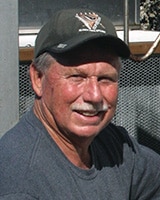 As of July 2016, I will have spent 46 years in the natural resource profession. On reflecting over those years, although more pronounced, many of the challenges we face today as wildlife professionals aren’t all that new. What has changed is the technology. Advances in how we do and apply science allow us to see and visualize things in ways not possible 30, or 20 or even 10 years ago. In many cases, these advances have given us cause to re-evaluate how we do business; to rethink what is needed to achieve true long-term conservation goals and objectives.
As of July 2016, I will have spent 46 years in the natural resource profession. On reflecting over those years, although more pronounced, many of the challenges we face today as wildlife professionals aren’t all that new. What has changed is the technology. Advances in how we do and apply science allow us to see and visualize things in ways not possible 30, or 20 or even 10 years ago. In many cases, these advances have given us cause to re-evaluate how we do business; to rethink what is needed to achieve true long-term conservation goals and objectives.
The other thing that has changed is the culture; not just our professional culture, but the world around us as. Social media has increased the potential for any one individual to affect the thoughts and values of hundreds, if not thousands of others. We see this every day in the emotional outpourings of caring people who have little understanding of science or how the wild world really works. The Wildlife Society has always been about science, and that is as it should be. Aldo Leopold however, one of our founding fathers and for whom our most prestigious award is named once said: “There are two things that interest me: the relation of people to each other, and the relation of people to land.” I believe that as a professional society we can and must do more to foster this link between science and people. My commitment is to keep this fire burning.
Northwest Section Representative Nominees
Harriet Allen
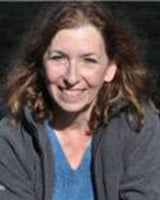 I view The Wildlife Society as THE organization for wildlife professionals that are “leaders in wildlife science, management and conservation,” as seen in our name and logo on the TWS website. I think TWS and its wildlife professional members are respected for being able to provide the sound science needed to make wildlife management decisions. In my three years as Northwest Section Representative I have seen how dynamic and invigorated TWS is, with an incredibly capable, dedicated and motivated headquarters staff, and the significant role that Representatives to Council play in decision-making for TWS.
I view The Wildlife Society as THE organization for wildlife professionals that are “leaders in wildlife science, management and conservation,” as seen in our name and logo on the TWS website. I think TWS and its wildlife professional members are respected for being able to provide the sound science needed to make wildlife management decisions. In my three years as Northwest Section Representative I have seen how dynamic and invigorated TWS is, with an incredibly capable, dedicated and motivated headquarters staff, and the significant role that Representatives to Council play in decision-making for TWS.
In the next three years, I envision TWS, the Council and members working to:
- continue the building and monitoring of a sound TWS financial structure;
- determine the best strategies for Society publications into the future;
- increase TWS partnerships at many levels;
- increase and retain members by providing the best benefits and values to members;
- ensure strong policy influence and support for TWS positions and issues of concern;
- recruit, train and retain a new generation of leaders of TWS and the profession;
- increase diversity in TWS and the profession;
- provide great support to chapters and sections; and
- to be recognized as the strong, scientifically-based organization for wildlife professionals.
It has been an honor to serve as the Northwest Section Representative to TWS Council the last three years. If elected, I would work hard to continue to bring perspectives from the Alaska, Idaho, Montana, Oregon and Washington Chapters of the Northwest Section to the Council discussions and decision-making.
Dana Sanchez
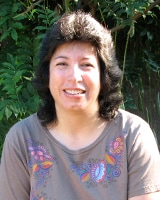 I am fortunate to have had mentors at all stages that were deeply supportive of The Wildlife Society. The interdisciplinary undergraduate education and networking habits recommended by mentors and the TWS certification guidelines formed a sound foundation that supports my work as a researcher, educator and mentor.
I am fortunate to have had mentors at all stages that were deeply supportive of The Wildlife Society. The interdisciplinary undergraduate education and networking habits recommended by mentors and the TWS certification guidelines formed a sound foundation that supports my work as a researcher, educator and mentor.
Regardless of the individual backgrounds and experiences we each bring to our work, our profession is one bound by shared ethics around our relationships to the land, the native wildlife resource, the public trust, and opportunities for all to engage with the resource. I find this last point especially energizing for my work. At a broad scale, wildlifers play important roles in helping people increase their ecological literacy, and I hope we can increase that reach in the future because raising our Society’s collective level of knowledge would yield tremendous benefits. Furthermore, I believe that all aspects of what we do and what we can achieve as a profession will benefit when we broaden participation in our field, and when our professional culture and daily practices are inclusive such that we each achieve our maximum potential in our shared work.
As I have progressed through my career stages, I have appreciated the leadership and membersupported efforts to grow the scope, professionalism and vitality of our Society. Serving the profession, our Society and its members — current and future — is a genuine pleasure and always a rich learning experience. I am honored to be considered as a candidate for the Northwest Section’s representative to Council.
North Central Section Representative Nominees
Patrick E. Lederle
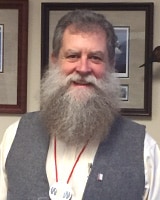 These are exciting times for TWS! The overall value to members is growing more rapidly than ever, publications are increasing in quality and accessibility, recent annual meetings have been outstanding, and we are on sound financial footing. Our Society continues to play a vital role in promoting professional wildlife management during these times of constant change, competing priorities, often declining budgets, and efforts (knowingly or unknowingly) to detract natural resource agencies from meeting their public trust responsibilities. Scientific publications, position papers, efforts of the Conservation Affairs Network, and direct interactions with decision makers, are all more important than ever to help ensure wildlife and wildlife professionals have an effective and rational voice at the table. All of these positive outcomes would not be possible without the dedication and hard work by staff, officers and representatives.
These are exciting times for TWS! The overall value to members is growing more rapidly than ever, publications are increasing in quality and accessibility, recent annual meetings have been outstanding, and we are on sound financial footing. Our Society continues to play a vital role in promoting professional wildlife management during these times of constant change, competing priorities, often declining budgets, and efforts (knowingly or unknowingly) to detract natural resource agencies from meeting their public trust responsibilities. Scientific publications, position papers, efforts of the Conservation Affairs Network, and direct interactions with decision makers, are all more important than ever to help ensure wildlife and wildlife professionals have an effective and rational voice at the table. All of these positive outcomes would not be possible without the dedication and hard work by staff, officers and representatives.
The Wildlife Society has been an excellent professional organization to be associated with throughout my career and I’ve benefited greatly from being a member. I am passionate about natural resource management and would like to contribute directly to the future positive initiatives of the Society and its efforts to promote and enhance professional wildlife management. My past experience serving TWS has been very rewarding and I would like to continue this by serving as the North Central Section Representative to the Council.
John J. Moriarty
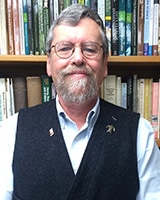 TWS has been a very important part of my career. I am the past president of the Minnesota Chapter and the North Central Section. The opportunity to serve as the North Central Representative to council will allow me to contribute to TWS development of a stronger membership base and have greater influence in wildlife conservation.
TWS has been a very important part of my career. I am the past president of the Minnesota Chapter and the North Central Section. The opportunity to serve as the North Central Representative to council will allow me to contribute to TWS development of a stronger membership base and have greater influence in wildlife conservation.
TWS is the leading scientific organization dealing with wildlife management, biology and policy. We have been working on these issues for over 75 years. Unfortunately, we are not seen as the go-to organization for the public or elected officials. The TWS chapters, sections, national staff and board do excellent work on providing important information to policy makers and nonprofit advocacy groups. We, the TWS membership, need to get that information out to a broader public audience. This can be done by a stronger collaboration between the National Office, Sections and State Chapters. I would like to work on making the connections even stronger so that every wildlife professional understands the importance of TWS.
Another important area is the inclusion of all wildlife in TWS activities, conferences, journals and policies. Emphasis of our traditional wildlife species should not be diminished, but the greater inclusion of invertebrates, reptiles, amphibians and other taxa should be embraced as an important part of TWS. This will provide us a wider membership by attracting members who had previously not considered TWS as an appropriate professional society for their taxa. This increased membership will provide a stronger voice in habitat and ecosystem protection.
Header Image: ©Gary Eslinger/USFWS








